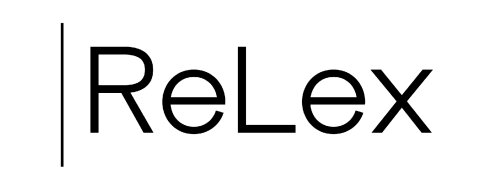Best Copyright Lawyers in Republic of Lithuania
Share your needs with us, get contacted by law firms.
Free. Takes 2 min.
Or refine your search by selecting a city:
List of the best lawyers in Republic of Lithuania
About Copyright Law in Republic of Lithuania:
Copyright law in Republic of Lithuania protects the rights of creators and authors of original works, such as literary, artistic, and scientific works. It grants the creator exclusive rights to reproduce, distribute, and display their work. Copyright protection is automatic upon creation of the work, but registration can provide additional benefits.
Why You May Need a Lawyer:
You may need a lawyer for copyright issues if you are facing infringement of your work, need to register your copyright, or want to license your work to others. A lawyer can help you understand your rights, negotiate agreements, and represent you in legal proceedings.
Local Laws Overview:
In Lithuania, copyright protection lasts for the author's lifetime plus 70 years. Copyright registration is not required, but it can provide evidence of ownership. Fair use exceptions are limited, and penalties for infringement can include fines and imprisonment.
Frequently Asked Questions:
1. What is protected by copyright in Lithuania?
In Lithuania, copyright protects original works of authorship, such as literary, artistic, and scientific works.
2. Do I need to register my copyright in Lithuania?
Copyright protection is automatic upon creation of the work, but registration can provide additional benefits, such as evidence of ownership.
3. What are the penalties for copyright infringement in Lithuania?
Penalties for copyright infringement in Lithuania can include fines and imprisonment, depending on the severity of the infringement.
4. Can I license my copyrighted work in Lithuania?
Yes, you can license your copyrighted work to others in Lithuania. A lawyer can help you negotiate licensing agreements.
5. How long does copyright protection last in Lithuania?
Copyright protection in Lithuania lasts for the author's lifetime plus 70 years.
6. Can I use copyrighted works for educational purposes in Lithuania?
Lithuania has limited exceptions for fair use, including for educational purposes. However, you should always seek permission from the copyright owner.
7. What is the process for enforcing copyright in Lithuania?
If your copyright is infringed in Lithuania, you can take legal action, such as sending a cease and desist letter or filing a lawsuit. A lawyer can help you navigate the legal process.
8. Can copyright be transferred in Lithuania?
Copyright can be transferred in Lithuania through a written agreement. A lawyer can help you draft the agreement and ensure its validity.
9. How do I know if my work is eligible for copyright protection in Lithuania?
Your work must be original and fixed in a tangible form to be eligible for copyright protection in Lithuania. It must also fall within the categories of eligible works, such as literary, artistic, and scientific works.
10. Are there any copyright exceptions for using works without permission in Lithuania?
Lithuania has limited exceptions for fair use, such as for educational or research purposes. However, you should always seek permission from the copyright owner before using their work.
Additional Resources:
For more information on copyright law in Lithuania, you can visit the Lithuanian Copyright Office or consult with a legal professional specializing in intellectual property law.
Next Steps:
If you require legal assistance for copyright issues in Lithuania, consider contacting a lawyer who specializes in intellectual property law. They can help you understand your rights, protect your work, and navigate the legal process if necessary.
Lawzana helps you find the best lawyers and law firms in Republic of Lithuania through a curated and pre-screened list of qualified legal professionals. Our platform offers rankings and detailed profiles of attorneys and law firms, allowing you to compare based on practice areas, including Copyright, experience, and client feedback.
Each profile includes a description of the firm's areas of practice, client reviews, team members and partners, year of establishment, spoken languages, office locations, contact information, social media presence, and any published articles or resources. Most firms on our platform speak English and are experienced in both local and international legal matters.
Get a quote from top-rated law firms in Republic of Lithuania — quickly, securely, and without unnecessary hassle.
Disclaimer:
The information provided on this page is for general informational purposes only and does not constitute legal advice. While we strive to ensure the accuracy and relevance of the content, legal information may change over time, and interpretations of the law can vary. You should always consult with a qualified legal professional for advice specific to your situation.
We disclaim all liability for actions taken or not taken based on the content of this page. If you believe any information is incorrect or outdated, please contact us, and we will review and update it where appropriate.
Browse copyright law firms by city in Republic of Lithuania
Refine your search by selecting a city.















